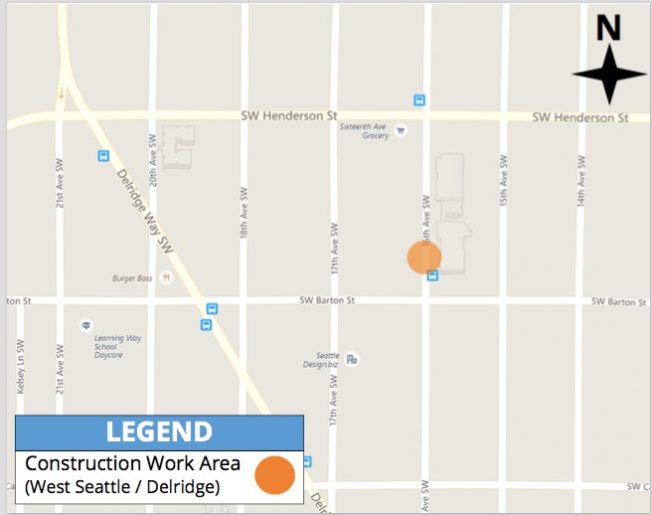As Seattle City Light continues getting ready for “advanced metering” (explained here), it’s installing taller utility poles in some neighborhoods. The work plan for next month has just been announced, including three West Seattle areas:
From the City Light announcement we received:
Seattle City Light is continuing to support Advanced Metering services throughout the utility’s service territory by replacing existing utility poles with taller poles, which will host wireless utility data collection equipment. The new poles will be 70 feet tall, which is about 20 feet taller than the existing poles.
(Maps of the construction work areas)
From the fliers [that will be distributed to neighbors]:
· This project is part of the communications network to support Advanced Metering, which will automate meter reading and enable enhanced services.
· There are no maintenance power outages planned for this work. Some traffic and parking impacts are expected in the immediate work areas. Crews will be careful to maintain access to driveways.
· Daily work hours are from Monday to Friday, 8:30 a.m. to 4:30 p.m. In most instances, the work to transfer existing equipment and install the data collection equipment can be completed in one day.
If you have questions about the pole installation and/or “advanced metering,” City Light says you can contact JoAnna Perley, Advanced Metering Deployment Manager, 206-733-9648 or joanna.perley@seattle.gov.




| 49 COMMENTS